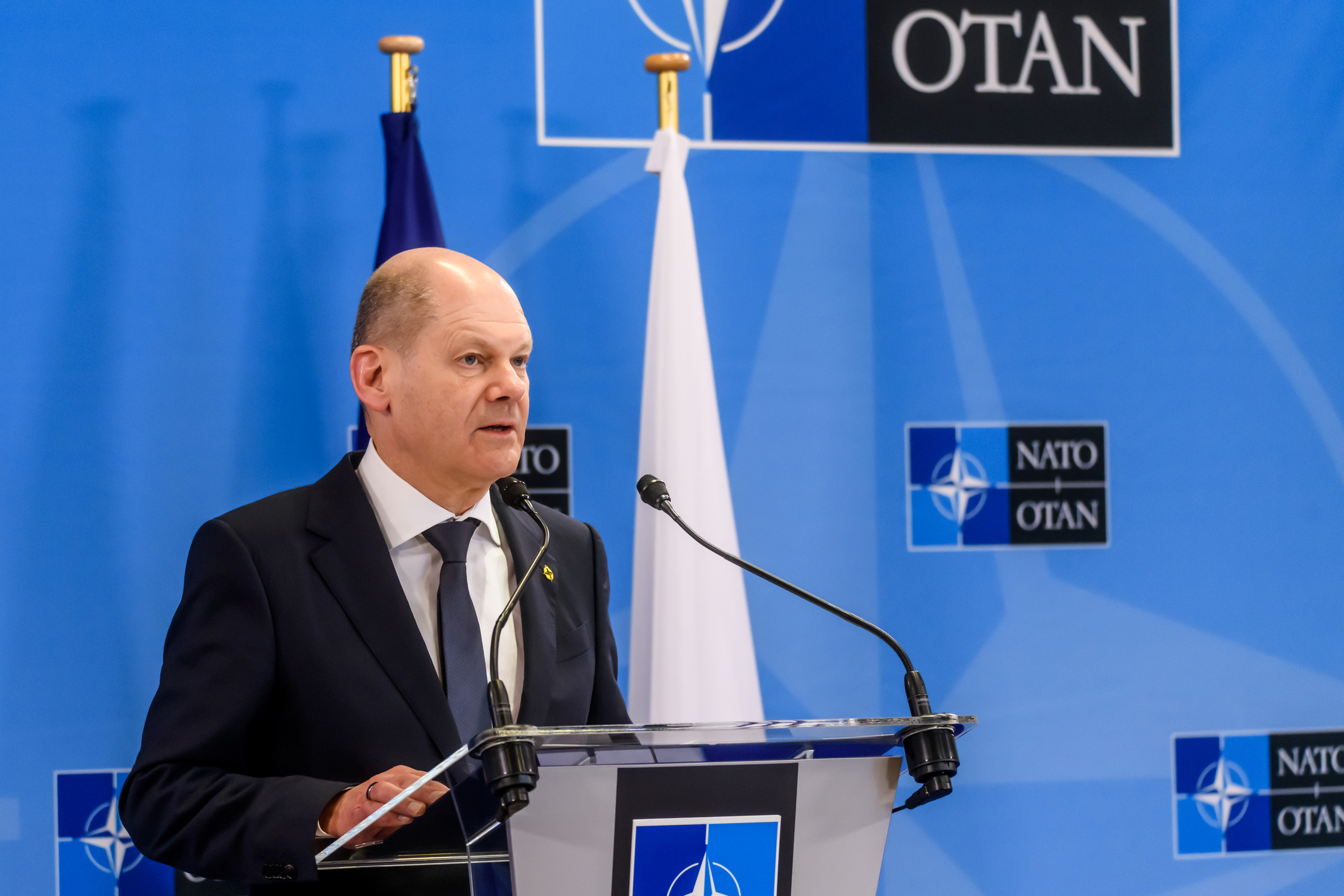Meeting the Challenges of Re-crafting German Defense and Security Policy
On February 27, 2022, the German Chancellor announced a major re-set of German defense and security policy.
On that date, German Chancellor Olaf Scholz pledged a €100 billion increase for defense procurement spending.
This commitment was certainly welcomed by Germany’s allies, but the challenge of turning enhanced investment into relevant defense capability is a challenging one, and certainly not just for Germany.
When West Germany crafted a strong defense capability in the 1970s and 1980s, it was built around territorial defense and being able to prevail in the war that might come through the inner-German border. The German Bundeswehr was built around conscription and tightly integrated with allied ground and air forces deployed on German soil.
This template is not relevant to what Germany and NATO need to do in the new circumstances. Clearly, German investment in credible defense of German territory is clearly needed, not the least of which being that Germany is hosting the major NATO logistics base in Central Europe.
But as new NATO nations join — Finland and Sweden — and focus shifts to forward defense of the areas most under threat of direct Russian assault, combing both World War II tactics with more modern innovations — Germany needs to sort through what it needs to shape in terms of power projection to the perimeter of Germany itself, including enhanced engagement with the Baltic region, meaning, Denmark, Finland, Sweden, and the Baltic states.
This requires capabilities to move relevant assets to the key choke points which might appear in case of Russian aggression. And choke points in the evolving conflict situation in Europe requires both non-lethal and lethal means of engagement.
In this series, I am going to address the question of the challenges facing German in shaping a relevant and credible defense capability as NATO reworks what that in fact means for Germany’s allies as well. The Germans will be working the re-design and re-direction of their forces as their allies do as well.
What templates for the development of German military capabilities will make the most sense?
How can innovation be enhanced to allow for cross-national capability development?
Clearly, Germany faces key challenges to generate a process to re-set defense in a credible direction.
In a May 26, 2022 piece by Alexandr Burilkov published by RUSI, the author underscored how difficult the core challenge is for Germany today:
“Finance Minister Christian Lindner boasted that Germany would build the most powerful military in Europe. Scholz, as well as German commentators, characterised this as a Zeitenwende (turning point), which would not only shed Germany’s reluctance to fund its armed forces, but also dramatically revise long-standing assumptions and practices in Germany’s approach towards Russia, essentially abandoning the Ostpolitik that had been standard since Willy Brandt.”
Burilkov then added: “Beyond the question of money, there is little indication yet that the Zeitenwende will change the political culture around defence and strategy in Germany, which remains the most prominent obstacle in increasing the readiness of the Bundeswehr. For the Zeitenwende to take hold, German politicians would have to develop sufficient appetite for risk to make the case to broader German society of why the use of force is a legitimate foreign policy tool, and why scepticism of technological progress inhibits badly needed military innovation.”
Then in an article published on July 20, 2022 by Michael Meyer-Resende published by EUObserver, the author highlighted the underlying cultural challenges to shaping the kind of strategic culture in Germany necessary to have a Zeitenwende:
“For most Germans the army had become a distant institution, especially since the abolition of military service in 2011. Soldiers were viewed as akin to toilet cleaners, doing a necessary job about which you would not want to talk too much.
“Discussion about geo-strategy and military matters has been largely absent from political life and hardly figured in policy or think tank debates. And the pacifist attitude has not gone away…”
In the next piece, I will address the question of how European allies of Germany perceive what they might wish to see Germany able to contribute to the collective defense. After all, if European defense is to have any real meaning, what German does or does not contribute will be a key element for shaping a credible way ahead.
Featured Photo: 24th March 2022. Olaf Scholz, Chancellor of Germany, during press conference, after NATO Extraordinary Summit. Brussels, Belgium Photo 244101949 © Gints Ivuskans | Dreamstime.com

